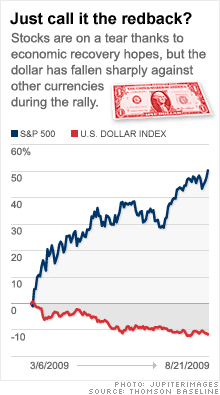WASHINGTON (AP) -- The Securities and Exchange Commission's watchdog has recommended "employee-by-employee" action to ensure the agency fixes the breakdowns that allowed Bernard Madoff's colossal fraud to go undetected for years.
The question of whether SEC employees will individually be held accountable for the agency's embarrassing failure to detect the multibillion-dollar Ponzi scheme that Madoff ran for more than a decade emerged at a hearing Thursday by the Senate Banking Committee.
"The first thing you have to do is clean house," insisted Sen. Robert Menendez, D-N.J.
No SEC employees have been fired specifically in relation to the bungled investigations of Madoff, though the heads of the agency's enforcement division and inspections office, which conducted the probes, have left the SEC in recent months.
David Kotz, the SEC inspector general, testified Thursday that more than 20 employees were involved in the failed examinations.
"The entire SEC should be held accountable for what happened," he said.
Two top SEC officials pledged to fix the problems that led to the agency's failure to uncover for 16 years what could be the biggest Ponzi scheme on record despite numerous credible red flags raised by outsiders. The heads of the SEC's enforcement division and inspections office said they "deeply regret" the agency's failure in the Madoff affair and promised changes to avoid future breakdowns.
SEC Enforcement Director Robert Khuzami, who joined the agency in March, said he has started the most extensive restructuring of his division in at least 30 years.
"We intend to learn every lesson we can," he said. "There are no sacred cows."
Khuzami said every stone will be turned in revamping the agency, including personnel decisions on a case-by-case basis.
Harry Markopolos, the fraud investigator who brought his allegations to the SEC about improprieties in Madoff's business starting in 2000, testified that the agency's staff "was not capable of finding ice cream in a Dairy Queen."
"They need to start weeding out staff. ... There's a lot of turkeys that need to be let go," Markopolos said, suggesting that more than half of the agency's professional staff should get pink slips.
Khuzami disputed that, saying the deficiencies in the Madoff case are not "emblematic of the entire (enforcement) division."
Markopolos, who determined there was no way Madoff could have been making the consistent returns he claimed, repeatedly and specifically raised warnings to SEC staff members in Boston, New York and Washington about Madoff's operations.
Madoff, who pleaded guilty in March, is serving a 150-year sentence in federal prison in North Carolina for a pyramid scheme that destroyed thousands of people's life savings, wrecked charities and gave the financial system another big jolt. The legions of investors who lost money included Hollywood celebrities, ordinary people and famous names in business and sports -- as well as big hedge funds, international banks and charitable foundations worldwide.
Kotz revealed in a detailed report last week how the agency bungled five investigations of Madoff's business between June 1992 and last December, when the financier confessed.
SEC Chairman Mary Schapiro, appointed by President Barack Obama, has brought changes to the agency and revamped enforcement efforts.
Kotz said Schapiro's actions and the progress cited by Khuzami and John Walsh, acting director of the SEC's inspections office, are real.
"This thing has really affected the SEC greatly," Kotz testified. "The SEC understands, I believe, that things need to be done and (they) are taking action."
Markopolos said "the pace of reform is rapid but (the SEC) needs to keep that pace going."
Kotz has recommended that Schapiro consult with agency managers "so that appropriate action ... is taken, on an employee-by-employee basis, to ensure that future examinations and investigations are conducted in a more appropriate manner" and the failures aren't repeated.
Under government civil-service rules, employee terminations would normally involve an administrative procedure and adjudication on a case-by-case basis.
"We will thoroughly examine all of the conduct and take appropriate action," SEC spokesman John Nester said in a statement after the hearing.
Sen. Charles Schumer, D-N.Y., a member of the banking panel and close observer of the SEC, told reporters, "I certainly think you need an overhaul." He said he is looking into the issue of possible personnel actions
Kotz's report cited no evidence of improper ties between agency officials and Madoff, nor of senior SEC officials trying to influence the agency's probes of Madoff, who was a prominent Wall Street figure.
But it paints a grim picture of an agency hobbled by incompetence. Its failure to pursue the most obvious leads, disputes among inspection staffers and lack of communication among SEC offices cleared the way for Madoff to continue his scheme for nearly two decades.
Providing fresh embarrassment for the SEC, Massachusetts Secretary of State William Galvin on Wednesday released a transcript of a 2005 telephone call in which Madoff coached a potential witness about fooling the regulators, saying "you don't have to be too brilliant" to get away with it.
Galvin's office reached an $8 million settlement this week with New York-based Fairfield Greenwich Advisors, a Madoff feeder fund, to fully refund state investors burned by Madoff.
According to the transcript, Madoff dismissed an SEC investigation as a "fishing expedition" and highlighted how investigators develop cozy relationships with firms they are supposed to regulate.
"The guys ... ask a zillion different questions and we look at them sometimes and we laugh, and we say are you guys writing a book?" Madoff said. "These guys, they work for five years at the commission then they become a compliance manager at a hedge fund now."






